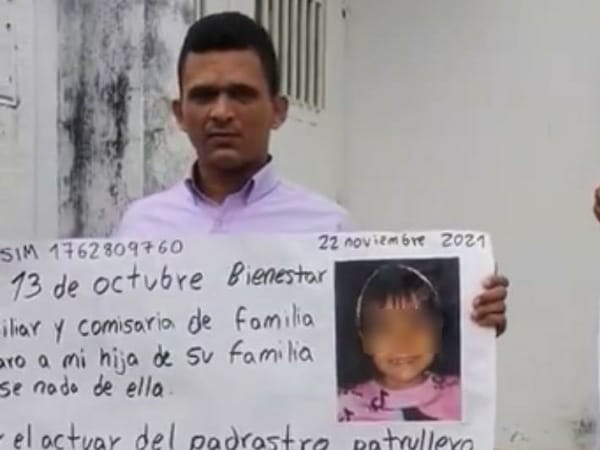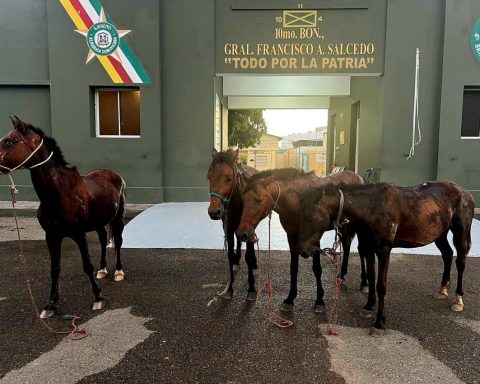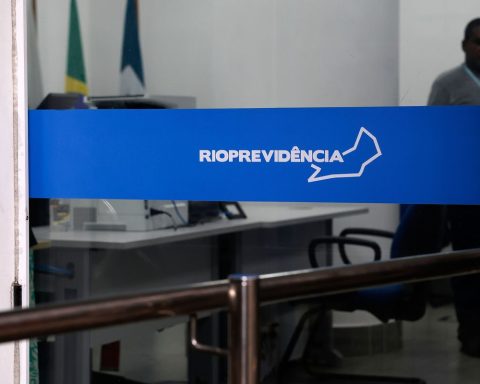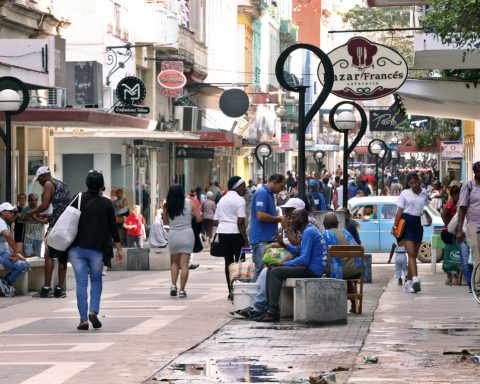
With a month remaining for the first round, the president of Evópoli, Andrés Molina, signaled on the radio Pattern: “Why not? We will never support a communist project, which is against the freedom of the people. Of that, there is no doubt. […] If José Antonio Kast passes to the second round, Evópoli will vote for Kast “.
When not all the tables were scrutinized yet, but the result was decisive, on November 21, the helmsman of National Renovation (RN), Francisco Chahuán, indicated that “we are going to strongly join (José Antonio Kast’s campaign) ”. Prior to the definition of the general council of RN, on November 24, the so-called leader of the social right, Mario Desbordes, through his social networks, said that “I have asked @RNchile that we should support @joseantoniokast. Beyond the public differences, the first is Chile ”. Meanwhile, the president of the PRI, Rodrigo Caramori, indicated that “(…) our political commission pointed out that the candidate who best represents the aspirations of the political center is precisely José Antonio Kast”.
Both the dean of the Faculty of Social Sciences and Humanities of the Autonomous University, Tomás Duval, and the academic coordinator of the CEP, Sebastián Izquierdo, define the trend of liberalism as one that ensures individual freedom, equality before the law, reduction of the power of the State, the staunch defense of individual rights, which ensures the rule of law, the defense of human rights and a free market economy.
Despite that, and with José Antonio Kast’s program in hand –cross-questioned at the time–, the so-called center-right took a step that was unthinkable months ago, such as making itself available to the representative of the extreme right. And the decision, which has already cost the resignation of several militants from Evópoli, was made with what they have now called the “declaration of intentions” of the presidential candidate, which –among other things– warned on issues such as the closure of the NHRI, the creation of an international network to persecute members of the “extreme left”, wanting to leave the UN, close the Ministry of Women, as well as the proposal to generate exceptional powers so that the The President could persecute and detain citizens at discretion in non-institutional places, close Flacso, benefits for married couples and several others, all in direct collision with his ideology.
At the end of the first year of his second government, President Sebastián Piñera himself expressed that “José Antonio Kast is not the way for Chile (…), I do not believe in extremes, the country belongs to all of us and we have to value diversity ”.
Although the cross-sectional majority in the ruling party indicates that it is not yet the time for further reflections, and that the cost that this may entail is “sunk cost”, the question that has been installed is how the center-right is going to do it when it intends to return to recover that electorate that for no reason would vote for the candidate of the Christian Social Front; The same center-right that was totally deprived of representativeness, after the institutional determination of those who had installed themselves as its ideological umbrella.
It should be remembered that not long ago, and discounting the UDI, they were RN –as a representative of the social right, under the wing of Mario Desbordes– and Evópoli –Cas the liberal right that came to expand the sector– those who fought to be the faithful representative of the “social soul” of the right, disputing which of the two had the greatest ideological foundations to build that long-awaited bridge with the disappointed Christian Democrats, and recipients of the always diffuse political center.
When representatives of the three parties were consulted, the response was the same: with an influential Communist Party (PC), as it is within Approve Dignity, and under the wing of the Broad Front, “there is no way to get lost.” And before the consultation of the clash of values and ideology, not only with José Antonio Kast, but also with everything that his sector represents, located to the right of the UDI, the answer was repeated without nuances. Different analysts explained it under the pragmatism of the sector when it is the model that is put into play.
Unlike what Sebastián Sichel did, to put nine conditions to deliver the support, conditions of the type “unrestricted respect for human rights: maintain the NHRI and eliminate from the program the proposal for a state of emergency in which the President has the power to intercept, open or register documents and all types of communications, and arrest people in their own homes or places that are not prisons, nor are they destined for detention ”, or the“ commitments of total respect for minorities and diversities ” Among others, the three parties of the so-called ‘moderate right’ did not do so.
For Duval, this is perhaps the biggest mistake made by the sector, since “the issue for all center-right or more liberal parties is going to be how they rebuild after a Kast candidacy, what are their projects.”
To this he added that “I would have expected the political parties to put certain important issues and issues on the table before running off to support Kast. That position was lacking there, RN and Evópoli must have placed two or three important issues on the table, with which the candidate could have compromised. I would have looked for an important point of the social right and liberalism, and I would demand it as a condition of the candidate, to have a floor in which I can later go back ”.
And although the immovable answer is the possibility that it is the PC that governs, not everyone in the sector has satisfied that position and there are several who have come out to stand out.
For the director of the School of Government and Communications of the Central University, Marco Moreno, “the emptying of the right, from the electoral point of view, this less neoliberal right, more towards the center, is attacking the project that does not It has gone from being in the speech, but it has never managed to connect electorally with the citizenry. Composition of the current Congress is a demonstration of that ”.
Although there is no method to calculate very precisely how much is the population that feels represented by the so-called social or liberal right, the electoral expert Mauricio Morales pointed out that one way to approximate it could be the vote that Sebastián Sichel obtained in the election of 21 November, as it was supported by the other representatives of the sector, such as Mario Desbordes, Ignacio Briones and Manuel José Ossandón, as well as the Chile Vamos parties. On the occasion, the former DC came fourth, with 12.78% of the votes and that would correspond to 898,331 thousand votes.
The uncomfortable position of Evópoli and the social right of RN
In Evópoli they indicated that “the cost is assumed” and since the general council established a position regarding supporting and deploying for the candidacy of José Antonio Kast, under the premise that for no reason can the Communist Party govern the country, they have been suffering a slow exsanguination through the resignations of its militants, such as the former youth secretary, Luis Castellón, who took the decision in the middle of the decisive appointment.
As noted by the Secretary General, Luz Poblete, on radio Cooperative, the exits have been given on two sides: those who were against any rapprochement with the candidacy of the leader of the Republican Party and those who were frustrated by not accepting to be part of the command or a possible future government.
The truth is that in the council in which a little more than 80 directors of the 100 that compose it participated, the first of the proposals on the table was whether or not to support the former UDI on his way to La Moneda and, as they related members of the instance, the vote would have resulted with about 75% in favor, and 25% against, which –in reflection of several of those consulted– He realizes that, although “it was known that our project was at risk”, it was understood that “Chile comes first”.
When there was no such difference in criteria, it was at the time of voting whether the support was going to be integrating the command or not. Finally, and as reported, there were no more than three points that differentiated the winning option –which implies not being part of an eventual government– on the other: “51 to 49”, recalled one of those consulted.
This decision has not stopped generating waves in the internal. In this regard, the constitutional lawyer Javier Couso, who in an interview with The counter He said that “Evópoli is mortgaging its future due to a false dichotomy between communism and freedom (…). It makes it very difficult to believe him in the future when he says that it is a liberal party. “
In turn, in an interview with the Universidad de Chile radio station, Patricio Nawrath, a member of Evópoli and former Diversity coordinator of Sebastián Sichel’s command, classified the support of the parties “immediately and unconditionally (…) as an error. If they are going to support a candidate who has the credentials they have, they are going to have to bear the costs ”. He added that “I feel that they rushed a lot and there is a mistake finally because they could have conditioned support for democratic credentials on various things, there were so many issues that we could have raised, and that statements come out later is not credible.”
Sergio Verdugo, professor of Constitutional Law and researcher at the Center for Constitutional Justice of the Universidad del Desarrollo and a collaborator of Horizontal (Evópoli study center), had already spoken through social networks, stating that “I have collaborated with the Horizontal’s constitutional project motivated by the defense of liberal democracy, human rights, constitutional change and the strengthening of the liberal center in Chile. Evópoli’s call to vote for JA Kast is unacceptable. “
Who has not yet appeared is the former presidential candidate of Evópoli, Ignacio Briones, in what, for many, is an unequivocal sign of his position inside the store. Although no one dares to assure it, more than one of those consulted said they believed that they would not be comfortable with the determination adopted by the general council. Others pointed out that it has to do with a low profile that drags, but that it would be working inch by inch with Evópoli’s requirements and that “it has not been subtracted” from the campaign.
In the case of RN, several were the appointments that sat the representatives of the social right, led by Mario Desbordes, and weeks before the election there were different speculations, but at no time was the position imposed, in the face of a possible clash between José Antonio Kast and Gabriel Boric, to make a call to abstain.
That does not imply –they indicated– deny that the reflection that did take place in several of the meetings, regarding how to bow to their candidacy, was going to mimic them to some degree with the most extreme right and, therefore, blur them from the map. At some point a draft was made of the 15 proposals by José Antonio Kast that went against the basic conditions for the military in the party. Finally, and as a way to protect themselves, a document was generated that was delivered to the directive, so that it could be sent to the Kast command, where they asked, among other aspects, to adhere to science on climate change, not to close the Women’s Ministry and respect for diversity.
Although several admitted that they work with “batting pain”, like the rest of the sector, the idea of a CP at the head of the Government –they recognized– he did not “leave us another alternative.”
















